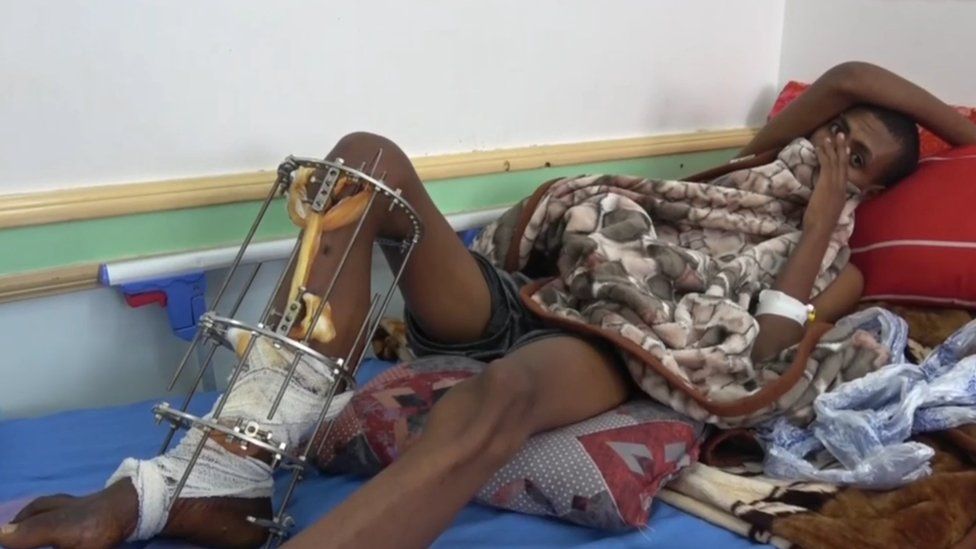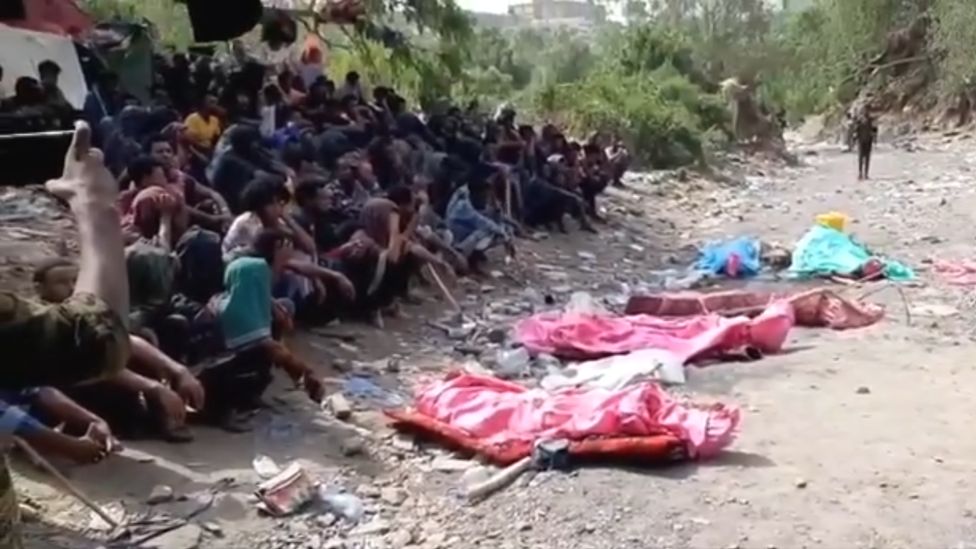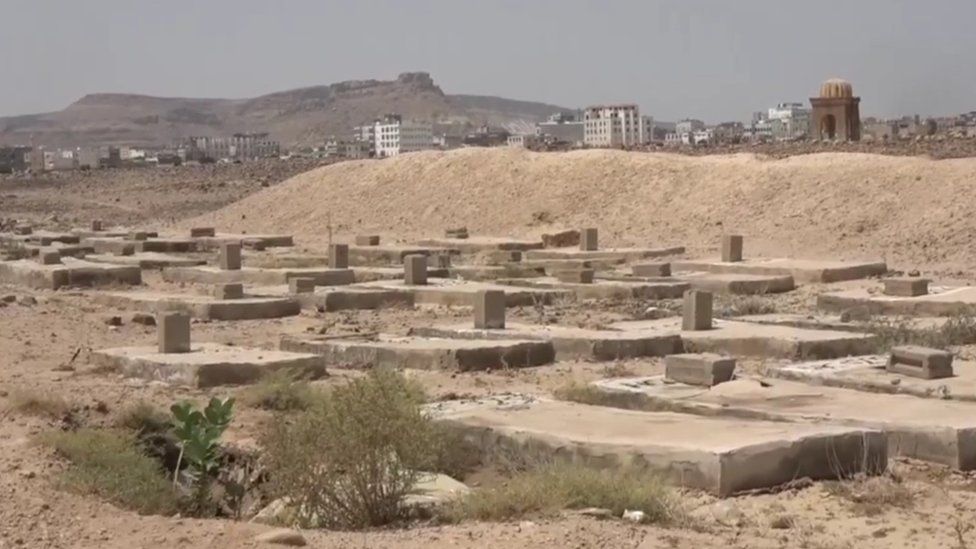Crossing the Border From Yemen To Saudi Arabia -- Don't!
"The shooting went on and on.""I didn't even notice I was shot but when I tried to get up and walk, part of my leg was not with me.""I went to Saudi Arabia because I wanted to improve my family's life but what I hoped for didn't materialize. Now my parents do everything for me."21-year-old Mustafa Soufia Mohammed"They beat us, killed some and took those who survived to the hospital. The bodies of those killed were left scattered on the ground.""I was shot between my thighs near my groin, and my legs are paralyzed now. I can't even walk. I thought I would die."Ibsaa, Ethiopian migrant
 |
| Ethiopian migrants say they were shot when they tried to cross from Yemen into Saudi Arabia BBC |
"What we documented are essentially mass killings.""People described sites that sound like killing fields - bodies strewn all over the hillside.""We say a minimum of 655 [killed], but it's likely to be thousands. We have factually demonstrated that the abuses are widespread and systematic and may amount to a crime against humanity."Human Rights Watch report's lead author, Nadia Hardman"I saw people killed in a way I have never imagined.""Immediately after we arrived [at the border], they [Saudi Border guards] fired on us.""A lot of people were dying. In a group of 200 migrants only fifty people survived.""It wasn't a bullet they were shooting. It was thrown from the back of a car, like a bomb. It kills a lot of people. They fired on a lot of people."Dahabo, 20, economic migrant
From
personal accounts of migrants crossing from Yemen toward the Saudi
Arabian border, rockets were fired by Saudi border guards, according to a
newly published investigation. Fleeing turmoil in the Horn of Africa,
hordes of migrants were shot with rifles and blown up with
rocket-launcher-like weaponry as they attempted to cross by land into
the Kingdom of Saudi Arabia.
Border
guards were charged with forcing teenagers to rape other migrants.
Victims were forced to select which of their own limbs they preferred to
be shot in, according to testimony evaluated from 42 survivors that
Human Rights Watch collated and published in their report. It is a
graphic, 79-page report claiming that Saudi border guards "systematically fired mortar and rocket launcher type weapons" on Ethiopian migrants.
The
situation is one of a background of neighbouring Yemen's civil war
overlapping into Saudi Arabia, Houthi terrorists, funded by the Islamic
Republic of Iran to transform Yemen into a Shi'ite stronghold aligned
with Iran, just as Syria, Iraq and Lebanon have become political
satellites of Iran in its plan to subjugate the Sunni majority in the
Middle East to Iran's quest to become its regional powerhouse. Saudi
Arabia formed a coalition of other Gulf states to intervene in Yemen to
restore its rightful government.
An
offensive stalemate was reached, the coalition unable to unseat the
Houthi rebels from the half of Yemen they took by military force. The
Houthis have attacked Saudi Arabia's oil infrastructure on occasion and
the war in Yemen grinds on. Simultaneously a surge in migration into
Saudi Arabia has taken place at its border with Yemen. Although the
Houthi leadership denies Saudi claims that they have been collaborating
with human smuggler groups to guide migrants into Saudi Arabia, this is
what is occurring.
The
ageless hostilities between between Saudi Arabia and Iran, the latter
believing it should control Medina and Mecca, not Saudi Arabia, came to a
surprising pause when the two countries recently signed an agreement
presumably of regional cooperation. Despite which there has been no
pause or cessation of the Iran-sponsored Houthi attacks on Saudi Arabia.
The
report issued by Human Rights Watch notes that the Houthis in Yemen
were aiding in the smuggling of mostly Ethiopian migrants arriving by
boat from Africa to the border with Saudi Arabia. It was also outlined
that "widespread" attacks by Saudi Arbia on the migrants have been a
reality since 2022, their deaths numbering in the hundreds, potentially
in the thousands; under international law, a crime against humanity.
 |
| The report says it is impossible estimate how many migrants have been killed along the border Social Media |
There
have been overtures to Saudi Arabia for years, prosecuted mostly by the
United States, for a new alliance between Saudi Arabia and Israel, to
become a partner in the Abraham Accords, an initiative for regional
peace formalized at long last, but Crown Prince Mohammed bin Salman, the
de facto ruler of Saudi Arabia has continued to balk at that
commitment. While the Islamic Republic of Iran continually threatens
Israel with destruction, its decades-long goal of nuclear devices geared
to that threat.
The
issue of Saudi Arabia and other gulf states forming closer relations
with China is one that perturbs the United States and its allies. Human
Rights Watch has shown graphic video footage and photographs of
survivors of Saudi attacks complete with atrocious injuries to the limbs
and faces of the migrants. The migrants' injuries appear consistent
with those sustained by explosive ammunition and gunshots, according to
consulted weapons experts.
Human Rights Watch declares the most recent attacks killing migrants "appear to be a deliberate escalation in both the number and manner of targeted killings"
that have taken place near the Yemen border since 2014. Through its
research the human rights group used satellite imagery to locate large
numbers of grave sites where victims were buried following the
massacres.
"Saudi officials are killing hundreds of migrants and asylum seekers in this remote border area out of view of the rest of the world.""Spending billions buying up professional golf, football clubs, and major entertainment events to improve the Saudi image should not deflect attention from these horrendous crimes."Nadia Hardman, researcher, Human Rights Watch
 |
| Migrant routes in Yemen are littered with graves BBC |
Perhaps the real mystery here is that of human nature itself. That a
mind-chilling reality of a nation that is notoriously xenophobic, one
that does not welcome those in whom it has no interest other than as
temporary labourers toward whom citizenship or civil rights will never
be given, prefer to be oblivious to the reality that the violent
reception at the border meted out to unwanted migrants fails to dissuade
them. The knowledge of the hostility with which they are met has not
dampened the ardour of young men to intrude where they are not wanted.
The
imagined lure of financial success should they access a country's
limitless resources for advancement propels them to continue testing
fortune. Penetrating the border when they cannot hope for any kind of
official status as immigrants and potential citizens of a wealthy
country motivates them to ignore the reality of the violent reception
they will be exposed to. That is the puzzle of human nature just as much
as the unwillingness to accept the presence of those that are unwanted
and to emphasize the resistance to be forced to accept them by simply
dispatching them from life.
Labels: Border Violence, Conflict Refugees, Economic Migrants, Ethiopian Migrants, Iran, Saudi Arabia, Yemeni Houthis

<< Home